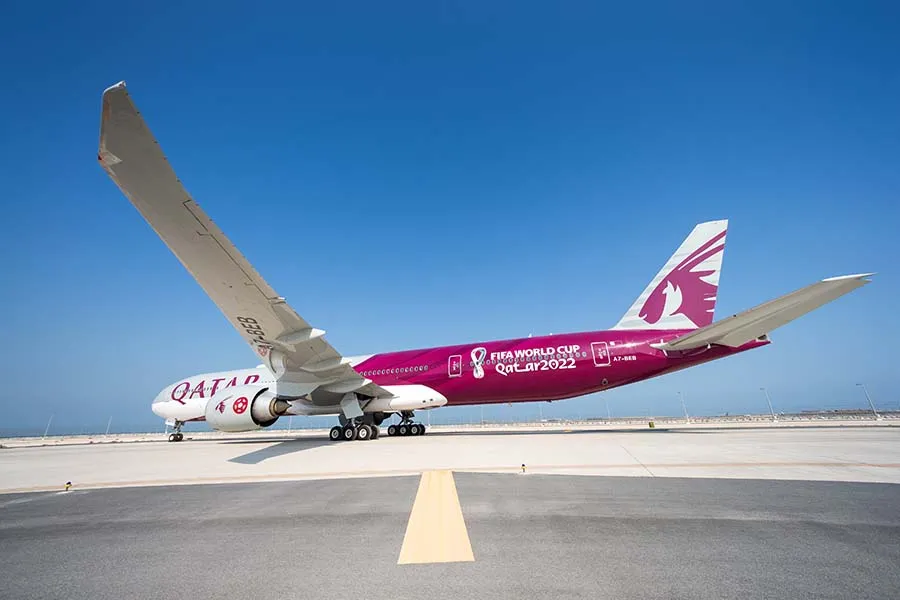
oneworld airline alliance commits to sustainable fuel target
Sep 22, 2021

The oneworld airline alliance has announced its commitment to a significant sustainability initiative aimed at reducing carbon emissions across its member airlines. The alliance has set a target to achieve net-zero carbon emissions by a specified date, emphasizing the adoption of sustainable aviation fuel (SAF) as a key component of this strategy. By collaborating with fuel suppliers and investing in innovative technologies, oneworld aims to promote the use of SAF in its operations. This commitment reflects the alliance's dedication to environmental stewardship and its role in leading the aviation industry towards a more sustainable future.
In an ambitious move towards a greener future, the oneworld airline alliance has committed to significant sustainability goals, particularly focusing on sustainable aviation fuel (SAF). This commitment resonates with the growing demand for environmentally responsible travel solutions. As part of this initiative, oneworld aims to achieve a target of 10% sustainable fuel usage by 2030. This goal is not just about compliance; it reflects a broader vision of transforming the aviation industry into a leader in sustainability.
Understanding Sustainable Aviation Fuel (SAF)
Sustainable aviation fuel is derived from renewable resources such as biomass, waste oils, and even agricultural residues. Unlike traditional jet fuel, SAF can significantly reduce carbon emissions, making it a cornerstone of the oneworld alliance's strategy. The use of SAF can lead to up to 80% lower lifecycle carbon emissions compared to conventional jet fuel, which is critical in mitigating climate change.
Why oneworld's Commitment Matters
The oneworld alliance, comprising some of the world's leading airlines, recognizes the importance of sustainability in maintaining competitiveness and meeting customer expectations. With travelers increasingly prioritizing eco-friendly options, the commitment to sustainable fuel is not just an ethical choice but a strategic one. This initiative positions oneworld as a leader in the airline industry’s transition to a more sustainable future.
Current Landscape of Sustainable Aviation Fuel
As of now, the aviation industry is witnessing a gradual shift towards adopting sustainable fuel. According to recent reports, the overall usage of SAF in commercial aviation remains relatively low, accounting for about 0.1% of total fuel consumption. However, with alliances like oneworld setting ambitious targets, there is a renewed focus on increasing production capabilities and infrastructure for sustainable fuels.
| Year | SAF Production (Million Gallons) | % of Total Aviation Fuel |
|---|---|---|
| 2020 | 5 | 0.1% |
| 2025 | 50 | 1% |
| 2030 | 500 | 10% |
How oneworld Plans to Achieve Its Targets
To meet the 10% sustainable fuel target by 2030, oneworld has outlined several strategic initiatives:
- Partnerships: Collaborating with fuel producers, governments, and research institutions to scale up production and distribution of SAF.
- Investment: Allocating financial resources towards the development of sustainable fuel technologies and infrastructure.
- Innovative Solutions: Encouraging member airlines to adopt new technologies that facilitate the use of SAF in their operations.
- Advocacy: Lobbying for governmental support and policies that promote sustainable aviation fuel production and usage.
The Role of Passengers in Promoting Sustainability
Passengers play a crucial role in the success of the oneworld alliance's sustainability efforts. By choosing airlines that are part of oneworld and support the use of sustainable fuel, travelers can contribute to the demand for eco-friendly practices in aviation. Furthermore, many airlines are offering options to offset carbon emissions, allowing customers to take a more active role in their travel's environmental impact.
Challenges Ahead for Sustainable Aviation Fuel Adoption
Despite the optimistic outlook, there are several challenges to the widespread adoption of sustainable aviation fuel:
- Production Costs: Currently, SAF is significantly more expensive to produce than conventional jet fuel, which can deter airlines from making the switch.
- Infrastructure: The lack of necessary infrastructure for the distribution and storage of SAF is a barrier that must be addressed.
- Regulatory Framework: Governments need to establish clearer policies and incentives to encourage the production and use of sustainable aviation fuels.
Conclusion: A Step Towards a Greener Future
As the oneworld airline alliance commits to its sustainable fuel target, it sets a powerful example for the aviation industry. The shift towards "sustainable aviation fuel" is not merely a trend but a fundamental change in how the industry operates. By embracing innovative technologies and fostering partnerships, oneworld is paving the way for a more sustainable future in air travel. As travelers, we can support these initiatives by making informed choices and advocating for greener options in our travel plans.
In the coming years, we can expect to see exciting developments in the realm of sustainable aviation, and the oneworld alliance will undoubtedly be at the forefront of this change. With collective efforts, the aviation industry can reduce its environmental footprint and lead the charge towards a more sustainable world.
Related Articles

Explore Thailand: The Best Islands to Visit for Paradise, Adventure, and Relaxation

The Ultimate Guide to the Best Islands in Thailand for Your Next Getaway

Do babies need passports? How to get a passport for a newborn

How to get a U.S. passport fast: here’s how to expedite the process

What is Mobile Passport Control: 5 reasons why you should use it

SENTRI vs. Global Entry: A detailed guide

Do you need a passport to go to the Bahamas? Let’s find out

Do you need a passport to go to Mexico? A detailed guide

Do you need a passport to go to Canada? We got the answer

Do You Need a Passport for a Cruise: An Essential Travel Guide

Booster Seat Requirements: All the Rules to Follow in Your Rental Car

What Are the World’s Most Powerful Passports, and How Does Yours Rank?

How to Take a Passport Photo at Home: A Helpful Guide

You've got to have heart! Southwest's new livery

Your opinion: Should water be free on low cost carriers?

Young women bolder than guys as solo travellers
